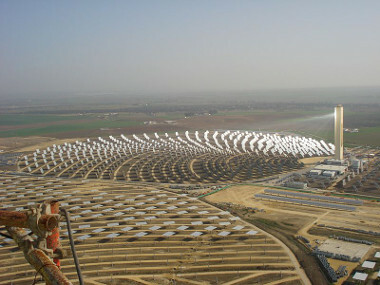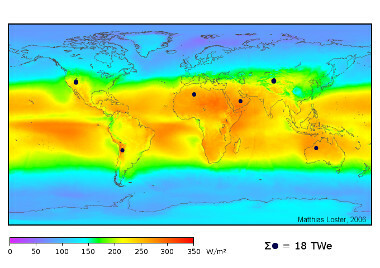the employment of solar energy comes from the concern to produce electricity from a renewable source, that is, one that will not be depleted in nature: the heat of the sun. It is commonly divided into two types: thermal and photovoltaic. Solar thermal energy operates by heating liquids, either water for domestic use or from it or some other liquid responsible for activating turbines and the consequent production of electricity. Photovoltaic energy, on the other hand, acts by converting the sun's heat into electricity through the photoelectric effect.
Although be considered a clean energy and more environmentally correct, solar energy has advantages and disadvantages, factors that make it possible to use it in certain places on the planet and not in others. Below, you can better understand the strengths and weaknesses of this important source of energy.
Advantages of solar energy
The first and main advantage of solar energy is that it is renewable, as the sun's heat will still remain active for a few billion years. Therefore, all energy production that relies on the use of solar radiation will not have concerns about its finitude, unlike what occurs with other sources.
Another positive factor is that this availability does not require any kind of adaptation, because in areas with greater insolation, solar energy is always present without the need for human intervention, contrary to what happens, for example, with hydroelectric plants, where relevant changes are needed in the beds of the rivers.
In addition to this fact, the free availability from the heat of the sun, without the need for any type of control of its sources in cases of use. In hydroelectric dams, the construction of dams can, eventually, cause losses in the use of water courses in some of its points. Therefore, the human being does not need to develop any form of intervention, only the best way to capture the light emitted by the Sun.
In addition to all this, solar energy is considered a clean way to produce energy. This does not necessarily mean that it does not generate impacts, but at least it does not emit pollutants into the atmosphere. For this reason, its use means less emission of greenhouse gases into the atmosphere by other energy sources.
For the production of solar energy, too large areas are not needed and not any type of deforestation, not even in the grandiose solar power plants. The latter, however, need to be located in remote areas because of the great heat generated in the environment around them.

Solnova solar power plant, located in Sanlucar la Mayor (Spain) *
Also, it is possible produce energy for remote places. For several technical reasons, solar energy is even highly recommended for the generation of energy for distant places. The installation of solar panels can also help supply electricity to small towns or houses located in isolated points and with low population densities.
Finally, the low maintenance that solar energy technology has, is increasingly advanced. In general, the durability of the equipment used is high, although the replacement costs of parts and materials are high in cases of malfunction.
Do not stop now... There's more after the advertising ;)
Disadvantages of solar energy
Among the disadvantages of using solar energy, we can highlight, first, the steep cost that its technology has, mainly in photovoltaic plates, which have a more advanced level of complexity. However, over time, the trend is that such costs will decrease.
Furthermore, the storage of solar panels is still inefficient, another factor that can be mitigated over time and with different technological developments. For now, this low use further undermines the cost-benefit ratio of solar energy equipment.
Some critics of solar energy also question the relationships around the production of equipment, as solar panels require a large amount of mineral extraction, such as zinc. With the expansion of the use of these plates, the demand for raw materials could become even more intense, which could contribute to unsustainable policies in the extraction of minerals, causing environmental damage, not to mention economic issues in the areas of production. Therefore, the greater use of solar energy also requires control measures in the generation of raw materials, otherwise the natural impacts could intensify.

Crusher, one of the minerals from which zinc is extracted
With regard to electricity generation itself, the problem of high climate dependence. In cases of anomalies in the behavior of the atmosphere, solar plants and homes that adopt solar energy can suffer from a lack of electricity. On the other hand, improvements in storage techniques can prevent this problem.
It is also noteworthy the impossibility of using solar energy in any region, which can be seen in the map below. In it, the areas with the greatest insolation on Earth and the points where it is more intensive are represented. It is worth remembering, however, that practically all energy sources have this problem of not being able to be used with the same advantage and efficiency throughout the entire terrestrial extension.

Map of the solar radiation received by the Earth
A last disadvantage factor to be mentioned refers to the relative environmental damages generated by solar energy, especially by plants. Although they do not emit pollutants and do not encourage deforestation, these solar plants can cause the mass mortality of species of birds that, attracted by the luminosity of the place, can approach and die quickly due to the heat generated in the environment immediately next.
Overall, experts in energy sources still claim that the use of solar energy is positive. And, as we can see, some of your problems may be lessened over time.
* Image credits: Takashi Kurita / Wikimedia Commons
By Me. Rodolfo Alves Pena


